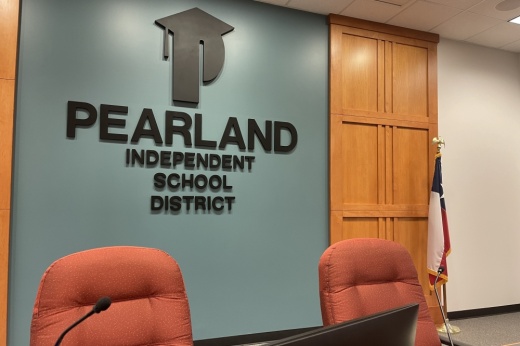Berger said he is looking to the 88th Texas legislative session beginning Jan. 10 for changes to the way school districts are funded in the state, which is through an equation measuring the average daily attendance of students, or ADA.
ADA is the sum of students present throughout the school year divided by the number of days that schools are required to be open, according to the Texas Education Agency. Schools earn $6,160 per student who meets the average daily attendance threshold; Sen. Nathan Johnson, D-Dallas, filed SB 88, which would increase this allotment to $7,075.
“We would definitely like to see the Legislature increase the basic allotment,” Berger said. “There is not an index with our basic allotment per student that we receive that makes adjustment for inflation, ... which we would like to see the Legislature do.”
Berger said the dependence on ADA contributed to the district’s budgetary concerns, such as the district’s current $7.3 million deficit in fiscal year 2022-23 and a projected $15.1 million shortfall in FY 2023-24. The COVID-19 pandemic heavily impacted daily attendance, and these issues continued into the recent flu season, he said.
“Even though a kid may be outside of school and I may only have 96% of the kids attending on a certain day, I'm paying for 100% of the school; I'm paying for 100% of the teachers and 100% of the facilities,” Berger said.
Berger said the district also is required to host full-day pre-K, but the state only funds half-time pre-K.
“We’re providing 100% of the education the state asks us to do, but they’re only giving us 50% of the funding,” he said.
School safety
Berger said the state provides $9.70 per student for the purpose of funding school safety initiatives. He said the school safety grant from Gov. Greg Abbott was helpful for districts to harden structures, improve surveillance and implement panic alerts, but an increased safety allotment would help with recurring costs.
“It is nice to get a kind of a lump sum, one-time payment to do some stuff, but when we are talking about putting security personnel and police officers in schools where we may not have them, that's a recurring cost that districts cannot absorb,” he said.
Additionally, Berger said more local control over the school safety funds passed down from the state would be more effective for Pearland ISD. For example, a grant was provided to all Texas school districts earlier this year for the sole purpose of purchasing ballistic shields, which PISD did not need.
“When you try to do one size fits all over 1,000 districts of different sizes, different needs, different ages, ... it doesn't always work,” Berger said. “So allow us to follow certain mandates [for the] safeties of our kids and our staff, but give us some local control over that money.”





